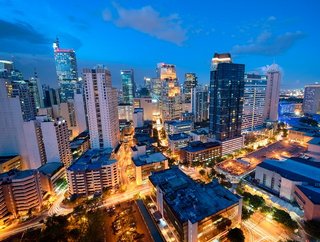The Philippines plans for $14bn pollution-free city

The Philippines government has announced plans to build a smart city in order to tackle the air pollution and traffic in the capital city, Manila.
The development of the new city, named New Clark, will cost US$14bn, and is expected to take place over the next 30 years.
The project is also expected to annually generate $30bn for the nation’s economy.
The city will be located 75 miles from Manila, spanning across 36 square miles, and accommodating up to 2mn people.
The development will feature drones, electric driverless vehicles, energy-efficient buildings, a giant sports complex, and green spaces covering two third of the land.
SEE ALSO:
-
Vancouver and Toronto streets ahead of London for green building certification – CBRE
-
Sweden launches the world’s first electrified road that can charge vehicles
-
How many offshore wind turbines does it take to power the world's major cities?
-
Read the latest issue of Energy Digital here
There will be five districts in New Clark, each with a different function – government, business, education, agriculture, and recreation.
“You'll gradually see Manila becoming a different type of city, and in New Clark City, and in New Clark City you'll see new technology companies coming through,” Heang Fine Wong, CEO of Surbana Jurong, informed CNBC.
The BCDA Group and Surbana Jurong will be responsible for developing the smart city, which will be larger than Manhattan and 184ft above sea level.
Construction of the city is anticipated to begin in 2022, accompanied by a new railway line connecting the new city to the capital.
The railway line will be constructed by the Japan Overseas Infrastructure Investment Corporation for Transport and Urban Development.
- Tan Delta Technology Empowers the Sustainable Energy SectorRenewable Energy
- Debunking Silicon Carbide (SiC) Myths: The Real StoryTechnology & AI
- Terabase raises US$25m for energy project construction techTechnology & AI
- How can businesses reap the benefits of mobile technology?Technology & AI






